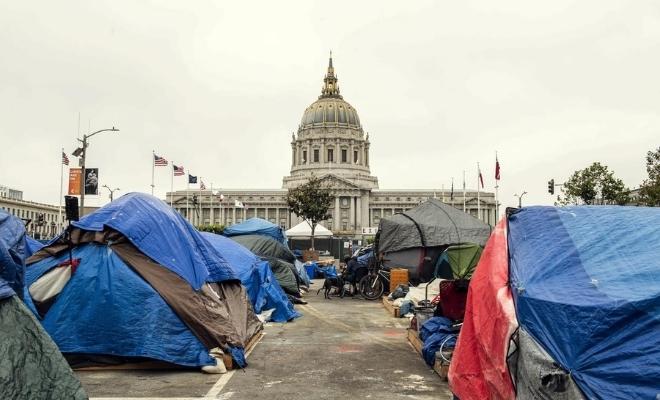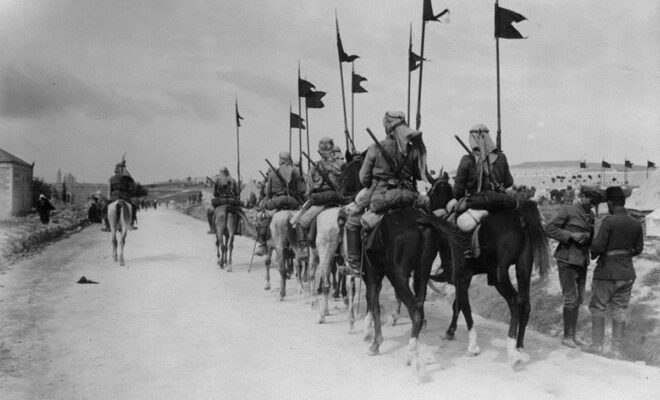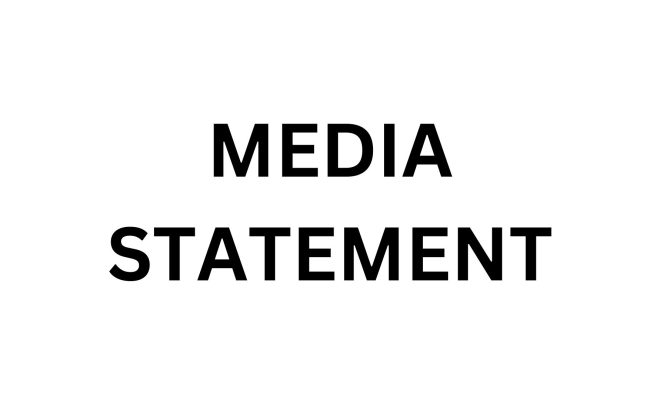Refuting the Capitalist Economic System

The following is an extract from the book Refutation of the Western Thought, where will we look at key points that illustrate the corruption within the Capitalist economic system. Specifically, we will refute the Freedom of Ownership (Private Property), the erroneous focus on production, and the so-called economic problem. Note: Some examples have been included that were not in the original text.
Freedom of Ownership (Private Property)
The distinct foundational basis of capitalism is the adoption of the idea of freedom of private ownership. That adoption is itself the result of the adoption of the idea of individual freedom. Since the capitalist ideology is based on the idea of freedom, with its individualism, the most important aspect of freedom of the individual is the freedom to possess whatever he wants, however he desires. Freedom of ownership is amongst the sanctities of Capitalism. According to their view, it is therefore mandatory to open the doors to possessing and developing wealth for individuals, by limiting state intervention, formulating laws that are mandatory in the protection of freedom. The legislation of Western laws is in origin to recognize individual private ownership of all the means of production, making the state responsible for protecting that freedom. The state is not to legislate any laws that would nullify that freedom, whilst restricting freedom only to the extent necessary to protect the freedom of others.
This is the original capitalist philosophy towards private property. However, the reality is that private property has developed over time from individual property alone, to the property of both individuals and groups, as limited property, in their words. This transformation occurred as a result of capitalists scrambling for profit, production and development of capital wealth. Capitalism is no longer defining the freedom of individuals in ownership alone. Instead, capitalism now ensures freedom of both the individual and a group or collective to possess. This is because industrial and technological developments imposed a new model of a competitive economy. It led to a multiplication in the volume of capital wealth and investment. This in turn imposed the necessity of owning the megaprojects, of huge capital investment by groups, as companies, such as joint stock companies, rather than a single individual. Capitalism also imposed state intervention, extending its role to fund and invest in many capitalist nations, to serve the goals of the so-called welfare state. This development indicates the fictional vision and invalidity of the capitalist economy. This is due to its contradiction to the origins upon which it was built, whose characteristic was the distinct characteristic of capitalism.
The idea of freedom of private ownership of all things is invalid in itself for two reasons:
Firstly, freedom of private ownership will inevitably lead to the concentration of the means of production, in the hands of a few individuals and groups. Freedom of private ownership ensures the concentration of wealth in the hands of a small capitalist class. It is this capitalist class that dominates the nation’s economy, by becoming the authority working to subjugate the political authority to its will, making the state a mere tool to serve its interests. This is the reality of what is actually witnessed in capitalist nations.
Examples that highlight this reality include:
- CNBC reported in late 2021; “The wealthiest 10% of American households now own 89% of all U.S. stocks, a record high that highlights the stock market’s role in increasing wealth inequality. The top 1% gained over $6.5 trillion in corporate equities and mutual fund wealth during the pandemic, according to the latest data from the Federal Reserve. The bottom 90% of Americans held about 11% of stocks, and added $1.2 trillion in wealth during the Covid-19 pandemic.”
- In terms of overall wealth inequality, Oxfam noted in a 2022 report the 10 richest men in the world own more than the bottom 3.1 billion people. They also noted that they doubled their fortunes from $700 billion to $1.5 trillion in the first 2 years of the pandemic.
Secondly, determining the type of ownership is related to the economic resources themselves and the economic system’s view towards the distribution of wealth. This is because wealth includes what is, and what is not, to be privatised. Since capitalism basically means the increase and development of wealth, it does not mean the distribution of wealth. Capitalism asserts that all economic resources are to be privatised. This is wrong, because economic equity in any society necessitates differentiation in types of ownership, thereby distributing wealth and preventing the concentration of wealth within groups. Moreover, taking care of the rights of groups mandates a certain type of ownership of public utilities, such as minerals and energy. Accordingly, the fact is that properties must not be limited to private property alone. Instead, they are to be actually differentiated into private property, public property and state property. Each of these three divisions are distinct in Islam, unlike capitalism and socialism, which testifies to the greatness of the Islamic economic system. It is the only system that is capable of organising the affairs of humans to ensure their basic needs, achieving their true well-being.
The Concept of Production
Capitalists define production as the process that leads to the creation of goods or services that have a value, contributing to the benefit of individuals. According to them, production is the creation of benefit (utility) or increasing it. However, the capitalist economy does not take into account all the benefits. Instead, the matter is restricted only to the benefit to the materialistic economy that are merchandisable (tradable).
So, the work of a woman who performs household chores, taking care of the affairs of the home and children, is considered productive only if she sells it as a service to others. As for her action for herself in her home for the sake of her family and children, it is considered from a microeconomic point of view, specifically from the angle of so-called ‘opportunity cost,’ as a loss to the labor market. Thus, economists do not take into consideration the social utility (benefit) and the role of raising children performed by a woman, by being a mother and a housewife. Instead, they evaluate it with the criterion of materialistic utility.
The view of materialistic utility that dominates Western society causes man to be evaluated on the scale of economic utility alone. Man’s value is evaluated only in the economic sense within society. His goals are determined by the production and consumption performed by man, in the machinery of work. He revolves around production and consumption like the hinge of a cupboard. Materialistic modernization resulted in the so-called Western philosophy of alienation, as described in Simmel’s The Philosophy of Money, whereupon relationships become more and more mediated by money. Thus, there is no surprise for us to see a woman, for instance, feeling ashamed of undertaking a natural, instinctive, social role, as a mother and housewife, because this is not productive economically. Therefore, she entered into the labor market with all her energy, neglecting her home and family, which in turn resulted in the fragmentation of the family and losses to children.
The Economic Problem
The economic problem according to the West can be simply summarised as the axiomatic principle of relative scarcity, with limited resources amidst unlimited needs. It means there is an insufficiency of goods and services to satiate all human needs completely. This is why they say, “The problem is that, although your wants, or desires, are virtually unlimited, the resources available to satisfy these wants are scarce,” as stated in Economics: A Contemporary Introduction by William A. McEachern. Thus, the Western intellect sees that “human needs are unlimited and man always seeks for more and better…one can never be fully satiated,” as stated in the book Introduction to Economics by Jelle Zijlstra. Since needs and desires are unlimited, whilst the material to satiate them are limited, the economic problem, according to the Westerners, emerges from the inability of achieving the complete satiation of such needs.
This view of the West is erroneous and contradictory to the sensed reality. This is because needs that must be satiated mandatorily are only the basic needs of a person, by virtue of being a human. These are not the secondary needs or the needs for luxuries, although Man seeks and works for the satiation of the needs for luxuries. Accordingly, basic needs such as food, clothing and shelter are limited. The wealth and efforts, which they call goods and services, are sufficiently available to satiate the primary, basic needs all over the world. As for the problem of ever-increasing needs, it is not related to the increase in basic needs, because the basic needs of a man, by virtue of being a human, do not increase. What increases continuously are the luxuries that arise from material progress. Man strives to satiate the needs for such luxuries, however, the non-satiation of such needs does not create problems. Instead, what causes problems is the non-satiation of basic needs alone.
Accordingly, there is no problem in the limitation of goods and services to satiate basic needs, so as to define it as an economic problem for society to address. The economic problem is in fact the distribution of such wealth and efforts. It is the distribution of wealth and efforts to all individuals that allows them to satiate all the basic needs completely, whilst helping them strive for the satiation of their needs for luxuries.
The capitalist economy has neglected the issue of the distribution of wealth. Instead, the capitalist economy made its economic goals centred on achieving materialistic development, whilst treating unemployment, inflation and deflation. Thus, the capitalist economy aims at achieving one goal, which is to increase the collective wealth of a nation. It works to reach the highest possible production level, in the pursuit of the maximum well-being for the members of society, as a result of increasing income and raising the production level of the nation. This goal is achieved by enabling them to obtain wealth, whilst leaving individuals the freedom to work to secure production and distribution.
Thus, the capitalist economy does not find solutions to satiate the needs of individuals and to provide the satiation for every individual of the society. Instead, it only focuses on providing things that satiate the needs of individuals. So, it focuses on the collective needs of increasing the production and income, providing the opportunity to work, whilst leaving this freedom to the individuals. This is regardless of whether satiation of basic needs is achieved for all individuals, or if it is only achieved by some of the individuals, and not others. This is neither the field of economic research, nor is its goal to satiate all the individuals. In their view, the poor must bear the responsibility for their poverty, because they themselves are the cause for it. This view of the capitalists is erroneous and contradicts reality because the basic needs that must be satiated are individual needs, by virtue of being human. These are the needs of Ali and Anthony and not the needs of select groups of people or nations.
Islamic Economics: The Way Forward
As for Islam, in addition to Shariah rulings to legislate ownership and work to increase production, it has legislated other rulings to ensure the complete satiation of all the basic needs of all the individuals. Islam also ensures the distribution of wealth for each individual citizen, one by one. Islam ensures all the basic needs such as food, clothing and shelter, are distributed to ensure complete, universal satiation. Additionally, Islam enables each individual citizen to satiate the needs for luxuries as much as possible. Thus, Islam neither ensures the satiation of basic needs as a patchwork to the system, nor addresses specific vulnerabilities, singling out certain groups to the exclusion of others, as capitalism does. Instead, Islam made modes of distribution as rulings of the system itself. Thus, the rulings permitting ownership and work for it, rulings of spending, rulings of taking care of all the affairs, all these are Shariah rulings, of equal import in legislation and evidence. Islam gives rise to a complete economic system as we have detailed in our books.









